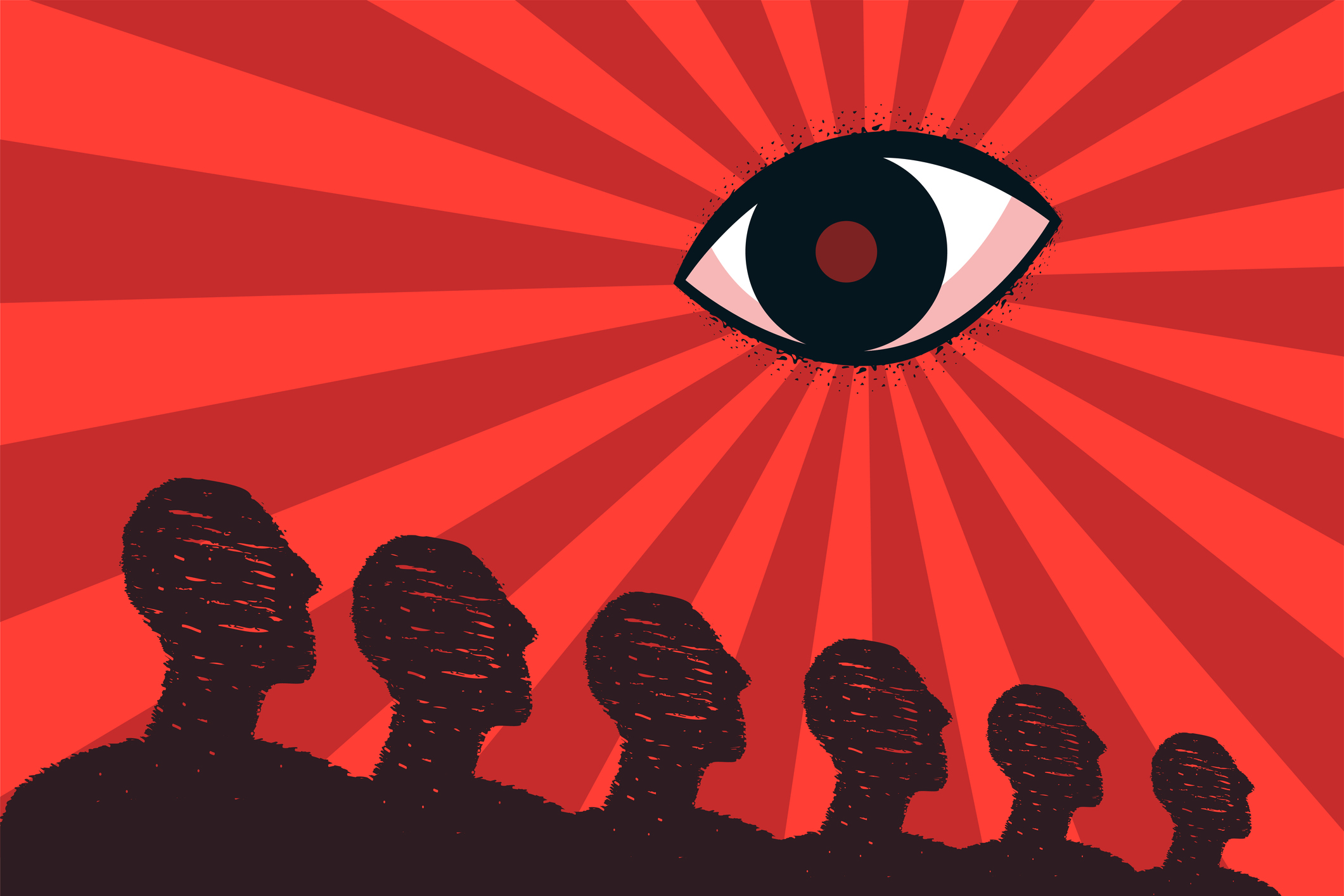Colleges even in deep red states aren’t immune to the Left.
Tradwife Ideology Won’t Save You

But humility, courage, and loyalty might.
If only ideologies worked. It’s easy to see why they tempt us: they promise to absolve us from having to think about complex practical decisions. They hold out the hope of black and white absolutes. We reach for theory when we sense our prudence coming up short.
But it’s best not to be an ideologue if you can help it. Falling for ideology means inviting dogmatists and snake oil salesmen to make your decisions for you. This is never more true than when it comes to education. The sad fact is that public school isn’t always and everywhere a bad option. Even worse—homeschooling isn’t always a good idea. It depends. You have to figure it out for yourself.
The political Right is full of people yearning for a comprehensive ideology to spare us from the inevitable hemming and hawing of young adulthood. If only it were true that “women should never work” because it is an affront to the divine feminine. If only strict division of labor among spouses was a surefire way to peace and happiness. If only the ideal woman or the ideal man could be so easily identified. If only this type of education or that type of living arrangement were always and everywhere totally and laughably wrong. Then we could more easily navigate the available options.
Blind Radicals
To be a young right-winger trying to raise a successful family in today’s political landscape is to be something truly new. Whatever our political inclinations, we remain products of modernity. There is no denying that. Nevertheless we are inclined to reject nearly everything we experienced in our youths as we pine for some mystical past or idealized American experience. What street smarts we do have, we’ve decided to throw out—along with the whole street itself, and sometimes the entire zip code of our childhoods.
We are radicals, to be sure, but we are cranky radicals. We don’t believe in today, and we sure as hell don’t believe in tomorrow, either. We see the way things are trending, and “progress” as it was understood in the 20th century no longer computes.
But we’re not relativists, for goodness’ sake. We believe there is an objectively good American life to be lived. So we arrive at our concept of “the good life” by deduction. The life we’d like to provide for our children isn’t what we know. It isn’t really even what our grandparents knew. Instead, we aim for what we think would remain if we took away all the bad parts of American modernity and kept all the good. Voila!
Our goal, and the object of our political movement, is therefore a total abstraction. We have no direct experience with it. It’s not etched out, it doesn’t exist currently, and most importantly, it never existed previously.
Therefore, as we approach major life decisions—whom to marry, where to live, how to educate our children, which groups and organizations to join—we have no culture to fall back on. And no tradition to conserve. We are “conservatives”…creating a future out of thin air, motivated by a total rejection of the only past we have ever known. We are “conservatives” who want to disrupt the current order. Perhaps those with true conservative temperaments are right to recoil at the sight of us. We are blind radicals with a penchant for old stuff.
There is nothing even remotely conservative about any of this. We seek to undo or reject the past, not to conserve it. Well, we reject the recent past anyway, which is the only tradition any of us have experienced. We have no memory or cultural inheritance of the distant, truly “traditional” past that we look to for inspiration, which is why ideology is so attractive to us. But we misuse it; we want ideology to tell us how to navigate life. We want our religion to be our culture, and philosophy to be our daily playbook. So we cosplay as European Catholic peasants and follow obscure philosophers on X.
This state of affairs—already taking shape in the conservative movement by 2008—explains what has been going on since about 2015 in Republican Party politics. It is a knock-down, drag-out fight between those who are comfortable—or at least not despairing of the current order—and those who find the current order so completely absurd they are willing to reject precedent and stumble about blind, in search of something better.
One side is genuinely conservative, in the most immediate sense of wanting to keep hold of a present reality. The other is not. Together, we make up “the conservative movement.”
Both sides are haunted by a growing certainty that leftism is moving rapidly toward the destruction of the country, and maybe of civilization itself. Yet the various factions on the Right are still more comfortable firing at each other—the damned laziness and slavish conformity of Conservative, Inc. or the outrageous radicalism and careless dialogue of the New Right—than we are taking on our common foe.
Maybe this infighting makes sense. We don’t really have a positive vision to sell to the rest of the country yet. The Right is a conglomeration of people who think modern American life is mostly fine and people who know it isn’t but aren’t sure what to build in its wake. What can we say to the rest of the country? “Burn everything down and follow us…we’ll figure it out as we go!”
We need a convincing picture of modern America to sell to the rest of the country, but we can’t fashion one until we understand how modernity (which we cannot escape) can develop along lines in keeping with the ancient philosophical and religious convictions to which we are devoted.
That means fleshing out or at least hinting at how to live in harmony with eternal truths, given the particulars we have to work with in American society. Our dogma, our Western canon, can outline the field of play, the dividing lines between fair and foul, what is entirely out of bounds, and the general rules of the game. It is essential that we do this—the field of play must be identified. However, actually playing the game once the rules are set is what it means to live out a culture and carry on a tradition. This cannot be culled from books.
For practical decisions like the division of labor in your marriage, educating your own children, where to live, or how to spend your time and money, ideology bites. Typically these decisions pit apples against oranges with no clear way of measuring options against each other with anything like moral certainty. Most of life is a basket of assorted choices, the nature of each not necessarily good or bad but up to personal taste, or dependent upon the situation. In the background of all of this is a rushing current of Boomer American culture, fully immersed in the sexual revolution and devoted to a progressive understanding of human nature that we all know is antithetical to our beliefs. We know we have to bail out of the cultural waters in which we swim, but we aren’t sure what stream to dive into next, and we don’t want to end up flopping around on land, asphyxiating.
We have a lot of decisions to make, and a lot of cultural rebuilding to do, requiring some real understanding of the available options and likely outcomes. And well, we simply lack that experience. Whom can we look to to guide us through the institutional wreckage post-COVID, post-divorce and broken family culture, post-civilization?
This is why, culturally speaking, the young Right languishes in various absurd online LARPs. We want some sexy, ancient, certainty-inducing ideology to instruct us, down to the minutiae of clothing and daily tasks, to save us from having to set out on paths and potentially double back when we make a mistake. We yearn for that soothing always wrong/forever right feeling that ideology can offer. Grilling in the backyard! Barefoot and pregnant in the kitchen! Dominating a new bronze age with a bunch of jacked pirates! Tradwifing our way to victory! Fighting for chivalric honor in full medieval armor! These pictures are all manifestly ridiculous and unworkable when you imagine all modern people occupying them, but at least the pictures look like something.
Armed with our rad doctrines, we can embark: safe, righteous, and clearly better than most people.
The realm of prudence offers the opposite feeling: you just stumble onward, hoping the decisions you make with the information you’ve got won’t be too embarrassing, and the mistakes won’t leave an indelible mark. Prudence arises from figuring it out—playing the game—over time. And “figuring it out” feels like you’re a naïve idiot, most of the time. The results are almost always less than ideal.
We are suspicious of American culture, but we must have something to help us navigate between the old and the new, for surely not all of our childhood nor all of postwar America is bad. What to hang onto, and what to throw out? Most of the decisions we have to make, in setting up our households and crafting some sort of lucid cultural response to the progressive Left, do not admit of black-and-white answers. We are sure that strong faith is needed, for example, but unsure as to what a culture composed of families with strong faith would look like in America right now.
An alternative culture must be established, we are certain. But we have to avoid the temptation to adopt an ideology or foist a caricature of what we think the past might have looked like, roughshod, onto our current reality.
If ideology, cults, role playing, and historical reenactment societies can’t help us build an alternative culture, then we are left with instinct, intuition, and common sense. We have to trust that prudence and wisdom will come as we make decisions, try things, and learn from our mistakes.
We are going to need to join communities, schools, organizations, and tribes despite the general decay and corruption of American institutions, because one man and one woman cannot give their children everything that is essential to flourishing. As we work to build good families and strong communities, we will acquire the beginnings of prudence. Good organizations will be recognizable by results: quality people and quality products. By their fruits, ye shall know them. People say and think a lot of things, but what they do, what they build, can furnish the best indicators of who they are.
Once we’ve been at this game for a while, we will have learned how to size people up, and how to give them neither too much nor too little credence. We will learn to judge an organization based on what it does, not what it says. Good schools educate kids well and spend very little time redefining what it means to be educated. Schools looking to hide deficiencies in the way they educate, however, spend a lot of time redefining.
Good faith communities help their members to live according to the faith and spend little time distracting from this goal with obsession over minutiae: hair and skirt lengths, dress codes, and byzantine rules. Are the rules a true aid to virtue or a distraction designed to keep members bickering and unproductive? Over time, we will learn to separate the smoke screens from the real goods.
Humor, Hope, and Creativity
How do we know which organizations to join, which schools and tribes to help us raise our kids, which relationships to foster and which to let die? Reputations built by previous generations can no longer guide us. Many grand institutions are now crumbling and in a state of total disrepair. In general, once the product of a human organization begins to falter, the people invested in it will turn to dogma, word games, and oppressive conformity to obscure reality. Therefore, we have to look beyond an organization’s history and instead assess the quality of its current product, and its current people.
There is no instruction manual or ideology that can make up for a lack of experience. But I do think there are markers that consistently identify the right track when it comes to social groups and organizations. In my experience, humor, hope, and creativity are the identifying markers—characteristics in the true sense of the term—that mark out people who possess the essential virtues of our time: humility, courage, and loyalty. We need to surround ourselves with people who are cultivating these virtues and join organizations that foster them.
Humility is essential, because none of us has any idea what we are doing. We are turning our backs on a lot of things we grew up with that are second nature. For nearly all of human history, people have lived according to second nature, the ways of their tribe and the family culture they were brought up in. But we are the children of cultural revolution, so this path is closed to us. We ought to be humble and admit to ourselves that we are trying to create a new culture to replace what doesn’t work anymore. There will be mistakes and miscalculations.
A bit of good news here: a humble disposition can wield an excellent sense of humor. Humility can cultivate a sense of adventure, and a bit of carelessness as to the exact outcome. It’s no coincidence that our time is resplendent with some of the best comedy in American history, and that New Media in particular seems to be most adept at creating and spreading hilarious content. There is a reason the Right is the decisive leader in comedy: our lack of certainty, our irreverence for what is combined with the disregard for settled dogma in our approach to the future, creates the perfect atmosphere for hilarity.
Dogmatists, by contrast, are uncomfortable with humor, because humor is irreverent.
In addition to humility and its sidekick, humor, we must have courage. Courage is the essential virtue to cultivate in ourselves in a modern society that is losing faith in itself. Courage lets us turn our backs on familiar things that no longer work and build anew. Courage carries with it optimism and hope, despite long odds. It counsels us to steer clear of pessimists and cynics, and to ignore those who have lost hope. It teaches us that intelligence is not synonymous with despair.
Finally, we need to arm ourselves with the virtue of loyalty. This virtue is cultivated in friendship and is a species of fortitude, essential when our backs are against the wall. There are always reasons to fall out with friends, especially in discouraging times. The virtue of loyalty will help us to save the relationships worth keeping. Our political landscape is littered with the corpses of friendships allowed to die over Trump, over COVID, over the general tumult of our times. If we wish to build communities and new institutions that last, we have to cultivate both loyalty and discernment, together. The good life we are striving for will be of no use if we arrive there all alone.
In order to succeed, we must find true friends to encourage us and protect us from despair as we fight. Friendships of this sort often give rise to great creativity, a sort of flowering of human potential once the twin straightjackets of blind tradition and loneliness are cast aside. A successful Right will be creative, even ebullient. It will not be staid.
Into the Unknown
Creating a new way of living in and with modernity while avoiding its cruelties (particularly its cruelties to children, to innocence, and to the human body) requires hope and creativity. Make no mistake: these traits which accompany the essential virtues of our age are the first to be stamped out by ideologues. Those who seek to create a slavish army for their cause will work to remove or otherwise discourage those who display individual prudence and self-government. Therefore, if you find yourself part of an organization or culture that consistently inspires trepidation, stultifying conformity, and hopelessness, ask yourself who is being served by the general incompetence of the group. Who benefits from this lack of flourishing, this infertility, this absence of life?
And, dear reader, ye shall know them by their lack of humor, hope, and creativity.
Do not turn to musty dogma out of inexperience. Do not give over your judgment in exchange for faux certainty. We all lack experience; we will figure this out together. Ultimately, what we are aiming for is self-rule, self-possession, and self-mastery in the face of both civilizational chaos and political tyranny. We seek to become virtuous, and we wish to remain free to pursue our good and the good of our children. There is no roadmap to lead us in the day-to-day decisions of our lives. There is no ideology that can deliver a culture ready-made for us, because we alone must make it. We must play the game, trying and failing, trying again, but always refusing to give ourselves over to any one of the myriad options for enslavement that modernity offers.
We are going to make a lot of mistakes, and we are going to feel like idiots most of the time. But we will have a hell of a time figuring it out, and all the best people will be in the mud there with us. In place of certainty, we shall have hilarity. Instead of predictability, we shall have adventure. In lieu of despair, we shall have hope.
The American Mind presents a range of perspectives. Views are writers’ own and do not necessarily represent those of The Claremont Institute.
The American Mind is a publication of the Claremont Institute, a non-profit 501(c)(3) organization, dedicated to restoring the principles of the American Founding to their rightful, preeminent authority in our national life. Interested in supporting our work? Gifts to the Claremont Institute are tax-deductible.
How radical relativism leads to ideological fanaticism.
Modern ideologues are fundamentally at odds with the nation as a political entity.
In a time of intellectual Babel, words fail.
A government agency seeks to delegitimize conservative politics.
The host of the Rubin Report talks about leaving the Left and forging his own path.






